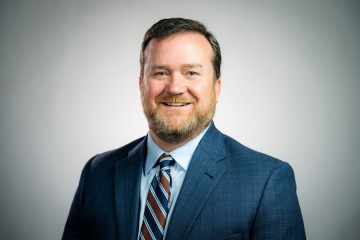In the recent Southern Baptist Convention (SBC) Annual Meeting in Anaheim, there was debate and a number of questions surrounding the issue of Saddleback Church and women as pastors. I’ve had a number of Oklahoma Baptist pastors contact me asking for comment and clarity, so I thought it might be helpful for me to address the situation.
As with understanding any issue, the best place to begin is with the Bible. In the New Testament, the term for the teaching/shepherding office in the church is “elder” (presbuteros) or “overseer/bishop” (episkopos). The apostle Paul clearly uses these two terms interchangeably in Titus 1, and Luke does the same in Acts 20 describing Paul’s farewell address to the elders in Ephesus. The term “pastor” (poimaino) does not refer to an office in the church, but rather a function of elders (Acts 20:28, 1 Pet. 5:2). Pastoring or shepherding is one of the things that elders do in the church. The exception is in Eph. 4:11 when Paul refers to “pastors” (poimenas), but does so in a list describing functions/gifts. Thus, there is biblical warrant for arguing that the term “pastor” can be used interchangeably with “elder/overseer.”
In the Pastoral Epistles, Paul instructs the young pastors Timothy and Titus that the office of elder is to be held only by qualified males (1 Tim. 2, 3 and Titus 1). Our confession, the Baptist Faith and Message (BF&M) 2000, affirms this scriptural teaching when it states, “While both men and women are gifted for service in the church, the office of pastor is limited to men as qualified by Scripture.” Shepherding/pastoring the congregation as a whole is a function of the office of elder/overseer/pastor and is limited to qualified males according to our confession.
Part of what has created some of the controversy in the SBC regarding women as pastors is the way Baptists have come to use the term “pastor.” It is noteworthy that the 1925 version of the Baptist Faith and Message does not use the term “pastor,” but rather states that offices in the church are “bishops, or elders, and deacons.” However, the 1963 and 2000 versions of the BF&M use the term “pastor.” The reason for this is that the term “pastor” had become synonymous with the office of “elder/overseer” in Baptist life. The difficulty is that in the last few decades, many SBC churches have begun to use the term “pastor” for a number of church staff members who are not qualified to be elders. It would seem to be helpful, therefore, if the term “pastor” was limited to those who are qualified to be elders since this is the meaning of the term in the BF&M.
Another helpful thing is to recognize the distinction of the office of elder/overseer/pastor and the function of pastoring/shepherding particularly when it comes to ordination. In the New Testament, ordination (or appointing/laying on of hands) was extended to the office of elder and not to any function or gift (Acts 14:23, Titus 1:5). Thus, ordaining someone for a certain function or gift they possess seems to be an extrabiblical practice that can cause confusion about the office of elder/overseer/pastor and those qualified to hold it.
In conclusion, I do not believe there is widespread confusion or departure from the biblical teaching or the BF&M regarding the qualifications of a pastor among Southern Baptists. Any confusion seems to stem from the way some have come to use the term “pastor” in a way not directly correlated to “elder/overseer” and from a lack of separating the office and the function of pastor and pastoring. I believe it is very important to note that one of the dangers in a discussion such as this is that we tend to focus more on what women cannot do in the church as opposed to what they do. Women are undoubtedly gifted and called to ministry. Think about how dependent our churches are on the ministry of women! They serve the kingdom of God in a wide range of capacities. The commands in Scripture to go and make disciples and to serve Jesus’ church are not intended for men only. As we think about this topic of scriptural qualifications for pastor, let’s not forget to appreciate the essential role women play in the ministry of the church.





